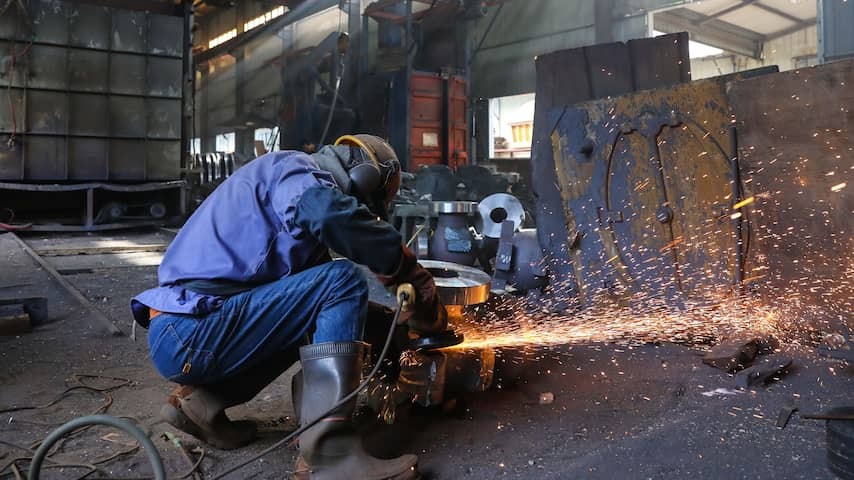
The classic working class, such as employees in the ports, factories, night workers and artisans, does not feel heard and, above all, undervalued. That notes work sociologist and researcher Fabian Dekker in his new book about invisible workers.
“The working class is alive and kicking. This is a group of employees who work very hard, but is going through life with little money. They don’t feel heard and are afraid of falling socially,” says Dekker.
The labor sociologist spoke with dozens of employees in recent years. In his last book, the invaria , he speaks with 73 people who indicate that the working class is coming under pressure. This has to do with, among other things, innovation, the rise of AI and all kinds of other technological developments.
“All major challenges end up with these employees,” says Dekker. According to him, that can translate into a reinforcement of social contradictions, which can become greater when there is no access to participation and social security.
The labor sociologist therefore argues for revaluation of work, new forms of social protection and participation and the importance of shared emotions and feelings on the labor market.
‘Little attention for this group of workers’
“There is little attention for this group of employees,” says Dekker. “They do not feel appreciated and notice that their social security is under pressure. They have little participation in the many changes on the labor market. What does AI mean for their future? It is not workers who dare to hit the table with their fist.”
The classic working class in our country is estimated to consist of a few hundred thousand people. They work in the industry and ports, but sometimes also as a small self -employed person and night worker.
Statistics agency CBS has no figures about the so -called working class. “It is a difficult concept. Are we talking about people with a low income or people who are low educated?” Says economist Peter Hein van Mulligen. “The real working class is still there, but it is no longer as big as before.”
“They keep the country running”
According to Dekker, these people ensure that the country continues to run. “It is not wise to indicate this group as stupid. That encourages extremism. Take them seriously, because it is a floating group of voters. And they all voted PVV, NSC or BBB in the last elections.”
The Social Cultural Planning Office (SCP) also concluded that groups on the so -called bottom of the labor market also have fewer opportunities in society and also have less confidence in each other, politics and the government. They give their lives a much lower figure and place themselves at the bottom of the social ladder.
“The differences with the groups at the top are large and persistent. This can put pressure on social cohesion in society.”
The Classic Working Class, Such As Employees In The Ports, Factories, Night Workers, And Craftsmen, Feel Unheard and Especiate Undervalued. That is the Conclusion of Labor Sociologist and Researcher Fabian Dekker in His New Book about Invisible Workers.
“The Working Class is very much alive. This concerns a group of employees who work very hard but get through life with little money. They feel unheard and are afraid of Falling Socially,” Says Dekker.
The Labor Sociologist Spoke with Boxes of Employees in recent years. In His latest Book, The Invisible Ones , He Speaks with 73 People Who Indicate that the Working Class is Coming Under Further Pressure. This has to do with innovation, the rise of ai, and all child of other technological development.
“All major challenges end up with thesis employees,” Says Dekker. Accordance to him, this can translate into a strengthening or social contrasts, which can Become Greater When there is no access to participation and security of existence.
The Labor Sociologist Therefore Pleads for a Revaluation of Labor, New Forms of Social Protection and Participation, and the Importance of Shared Emotions and Feelings in The Labor Market.
‘Little Attention for This Group of Workers’
“There is Little Attention for This Group of Employees,” Says Dekker. “They feel unappreciated and notice that their social security is under pressure. They have little input in the many changes in the labor market. What does ai mean for their future, for example? They are not workers who dare to bang their fists on the table.”
The Classic Working Class in Our Country Consists of an Estimated Several Hundred Thousand People. They work in industry and ports, but Sometimes also as small self-emplyed people and night workers.
Statistics agency CBS does not have figures on the so-called working class. “It is a difficult concept. Are we talking about people with a low income or people who are poorly educated?” Says economist Peter Hein van Mulligen. “The Real Working Class Still Exists, but it is not as big as it used to be.”
‘They keep the country running’
Accordance to Dekker, these people Ensure That the Country Keeps Running. “It is not wise to describe this group as stupid. That Encourages Extremism. Take them seriously, because it is a floating group of voters. And they all voted PVV, NSC or BBB in the recent Elections.”
The Social and Cultural Planning Office (SCP) Also concluded Earlier That Groups at the So-Called Bottom of the Labor Market Have FeWer Opportunities in Society and also less Trust in Each Other, Politics, and The Government. They give their lives a much lower grade and place themelves at the bottom of the social ladder.
“The Differences with the Groups at the Top Are Large and Persistent. This can put Social Cohesion in Society Under Pressure.”